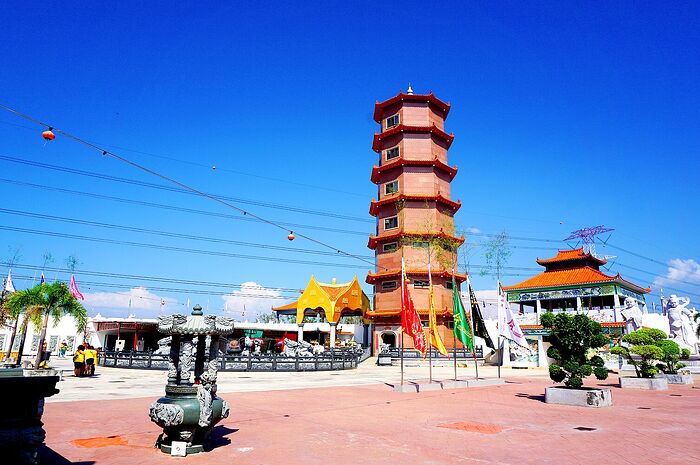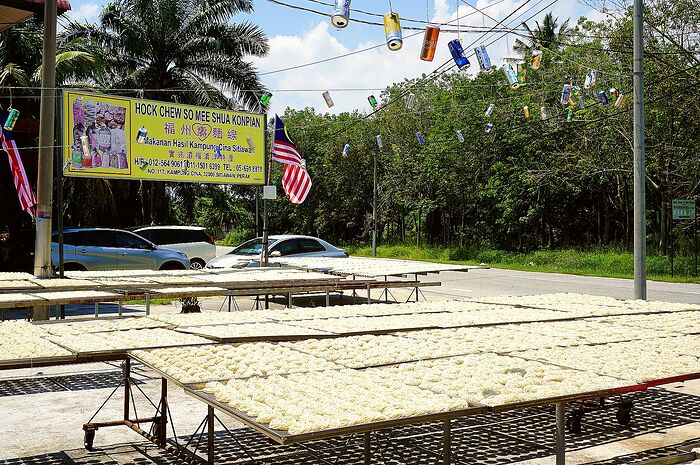Sitiawan, in the Malaysian state of Perak, is one of 3 Foochow-majority towns in Malaysia - the other two are Sibu in Sarawak and Yong Peng in Johore. The Foochow people are from Fuzhou, the capital city of Fujian province in China. The Christian Foochows emigrated en masse to British Malaya to escape the violence wrecked upon them by Qing-supported rebels during the Boxer Rebellion in 1900-1901. The mainly Methodist Christian Foochows were seen as traitors by the Qing/Manchu government, and were persecuted for their religion. It was then that the Foochows came to this area and built Sitiawan. Today, the Foochows constitute about 93% of the population of Sitiawan and its environs, which has 156,000 inhabitants.
We had lunch last Saturday at the oldest surviving restaurant in Sitiawan: the 81-year-old Choong Kwok, which offers a spread of Foochow dishes. It’s run by the two sons of the founder, the present generation of the Liew family. Their father, the Senior Liew, came to Sitiawan in 1913 as a 13-year-old from Minhou county, Fuzhou, China.
At the back of the restaurant are clay ovens for baking kompia biscuits. It was believed that the clay ovens and method of baking, similar to the Indian tandoor or the Central Asian tandir oven, was introduced by the Arabs/Persian merchants who settled in Quanzhou and Fuzhou in the 13th- and 14th-century. The baker is the younger of the two Liew brothers who now own the restaurant started by their father.
Kompia biscuits are unique to the Foochows here in Malaysia. The biscuits are either plain, or else stuffed with lard & scallions, of char-siu (BBQ pork), or sweetened, grated coconut. The biscuits are slapped onto the side of the clay ovens, the same was as Indian naans are cooked in a tandoori oven, and baked by heat from the charcoal at the bottom of the oven.
Kompia with lard-scallion filling:
Kompia with sweet, grated coconut filling:
The locals here nicknamed the kompia “Chinese bagels” as they are quite chewy. Since the Foochows are also terrific coffee brewers here, in competition with the Hainanese, we had some excellent Foochow coffee to go with our kompia.
One of the many Methodist churches doting this staunchly Christian district.
Unlike the rest of Malaysia, where Chinese Taoist or Buddhist temples flourish wherever the Chinese settle, Sitiawan has mainly Methodist churches. A list of just some of the churches in Sitiawan that we noticed in the local museum:
Also explains why most of the restaurants/eateries we visited will be closed on Sundays.
Address
Choong Kwok
74, Jalan Lin Chen Mei, Kampung Koh
32000 Sitiawan, Perak, Malaysia
Tel: +605-692 1058
Opening hours: 7am to 3pm, Mon to Sat. Closed on Sunday.































